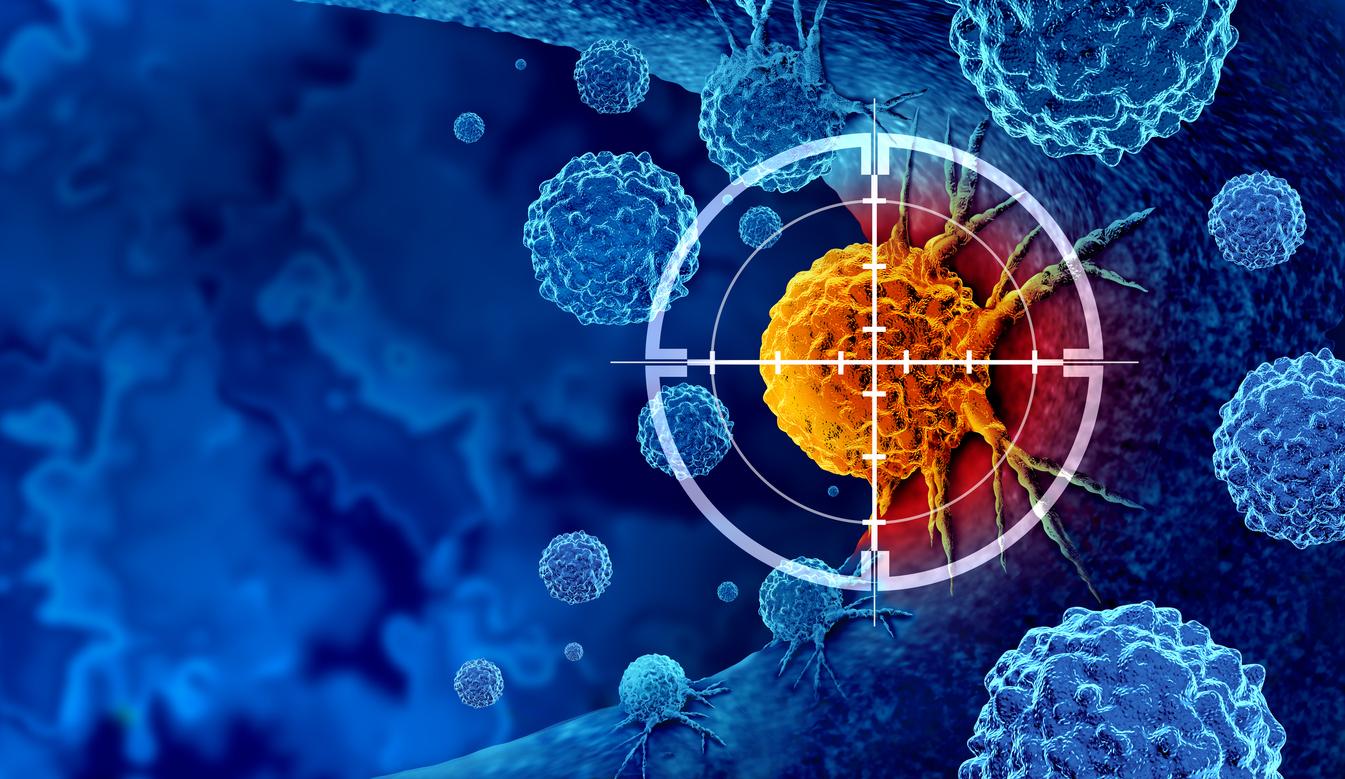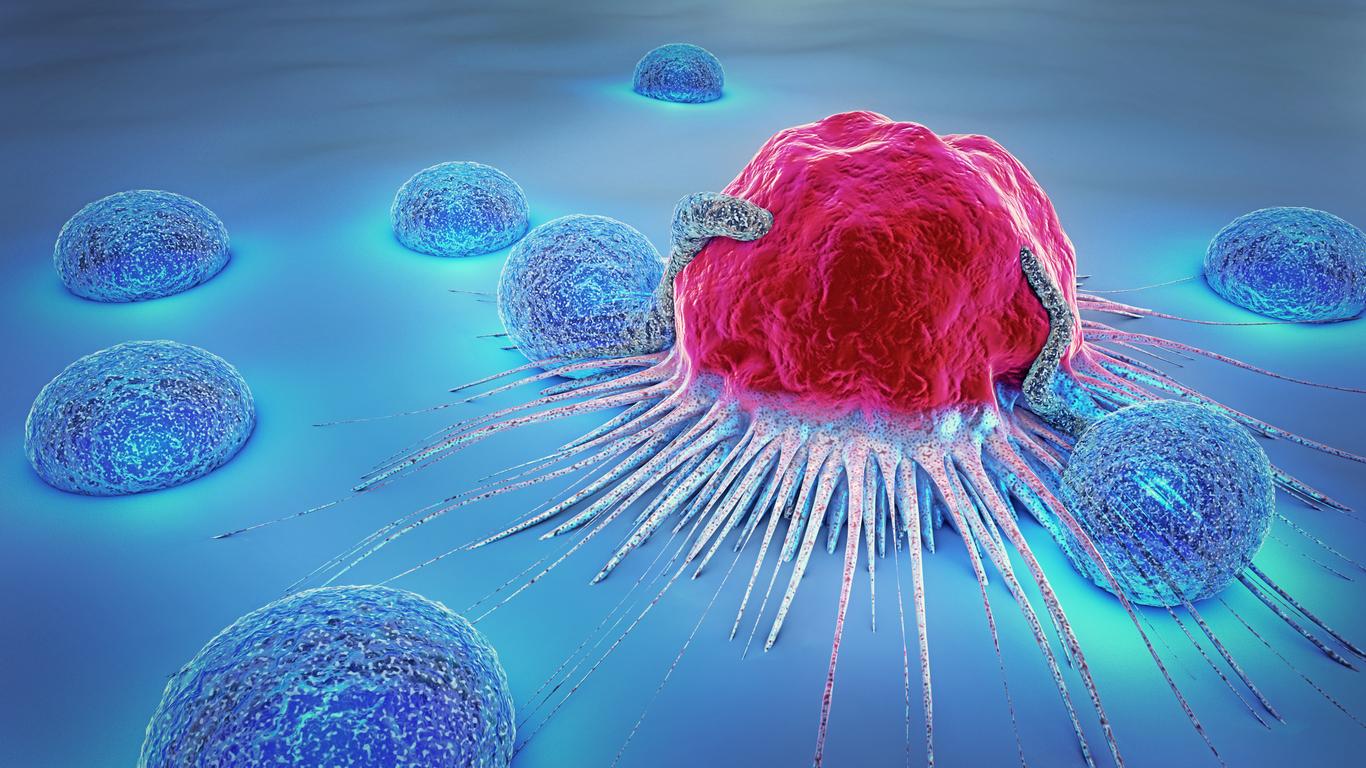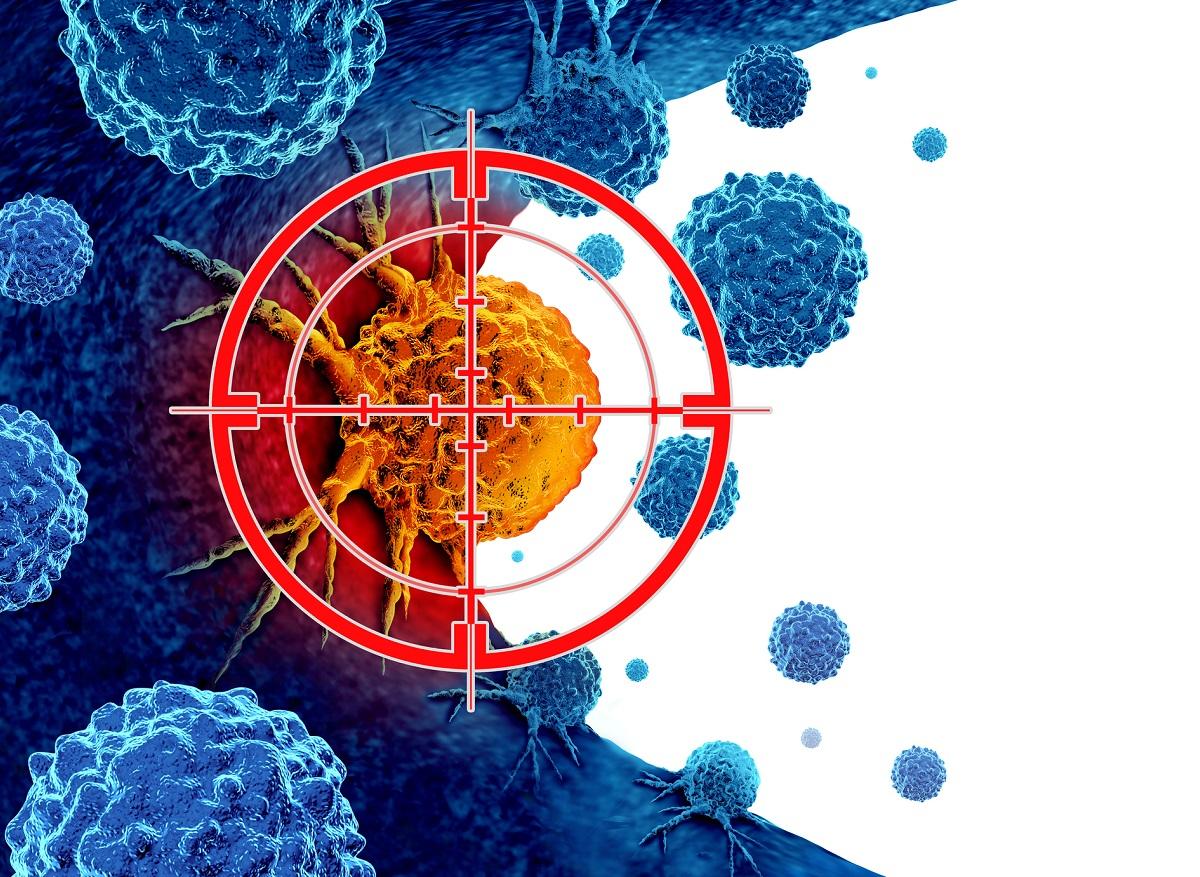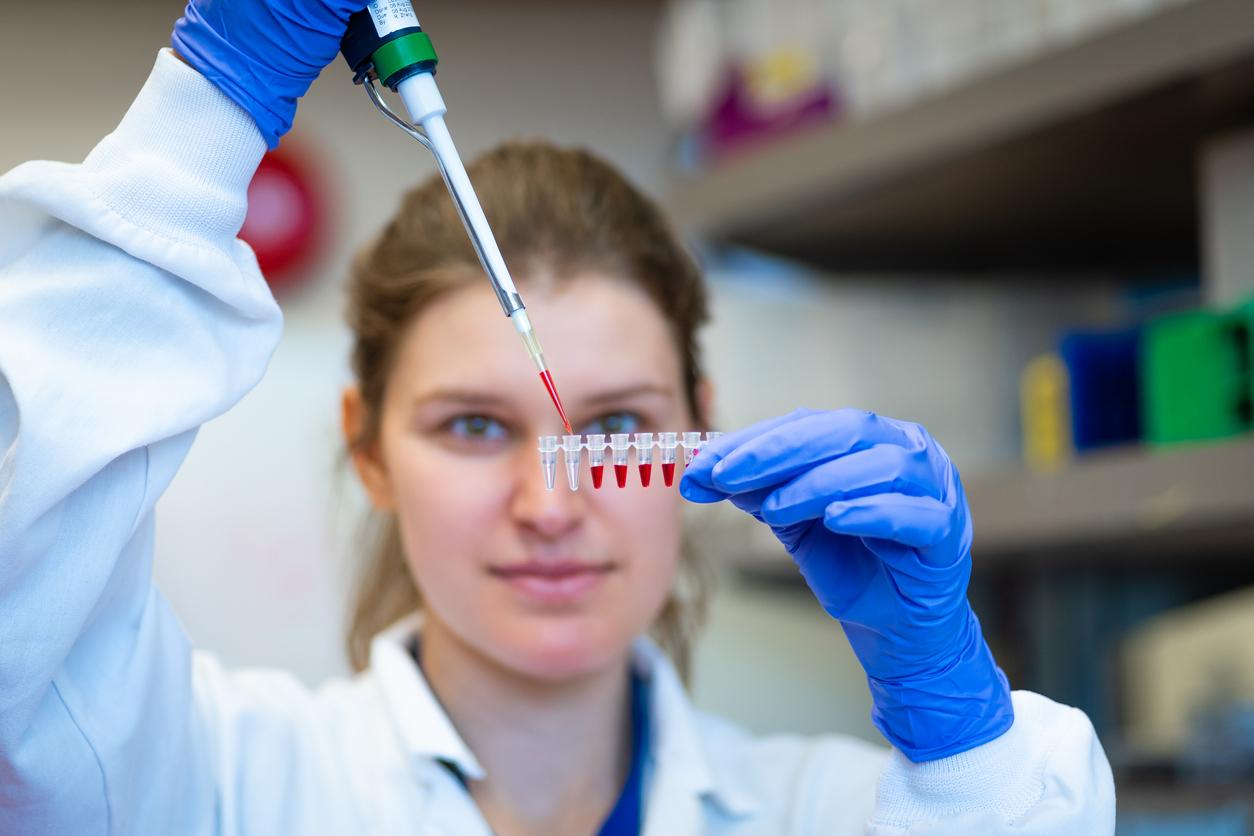A gene would activate a retrovirus present in the human genome for millions of years. This discovery could allow the development of new treatments based on immunotherapy.

- Retroviruses are a family of viruses including HIV.
- There are two types of esophageal cancer, including epidemoid cancer, which represents 65% of cases and is formed from cells of the mucous membrane
- Adenocarcinomas develop from cells in the lower esophagus
What if some cancers had a prehistoric origin? American scientists have discovered the existence of a link between prehistoric retroviruses and esophageal cancer, when they did not expect it. This team of scientists from the Irving Medical Center at Columbia University in the United States created esophageal organoids using tissue taken from mice to study the development of esophageal cancer. In Nature Genetics, they say that this experiment enabled them to discover the role of the SOX2 gene in the appearance of these tumours: it activates endogenous retrovirus elements, ie old retroviruses present in the human genome for millions of years. Concretely, these old viruses have degraded in our organism and have thus inserted themselves into the genes, which disrupts their functioning. “It was surprising“, says Adam Bass, the director of this study. “We weren’t specifically looking for viral items.”
What is the impact of this discovery?
This unexpected discovery could improve the effectiveness of treatments that are already available, such as immunotherapy. “When cells activate many endogenous retroviruses, this generates a large amount of double-stranded RNA, which penetrates inside the cytoplasm of the cellexplains Adam Bass. This creates a condition similar to a viral infection and can trigger an inflammatory reaction. In this way, endogenous retroviruses make cancer more susceptible to immunotherapy.“According to him, many researchers are working on ways to trap cancer cells by activating endogenous retroviruses. They are particularly interested in the role of the ADAR1 enzyme: it is associated with lower survival rates, but can degrade Double-stranded RNA of retroviruses Studies have already shown that when this enzyme is blocked through immunotherapy, survival rates are better.
More common cancer
Research on this cancer is all the more necessary as it is today associated with low survival rates. At 5 years, it is about 20% in women and 16% in men. In France, approximately 4,500 esophageal cancers are diagnosed each year. According to Learned Society for Diseases and Cancers of the Digestive System, it is now six times more frequent than thirty years ago. 90% of cases are related to tobacco or alcohol.
.















